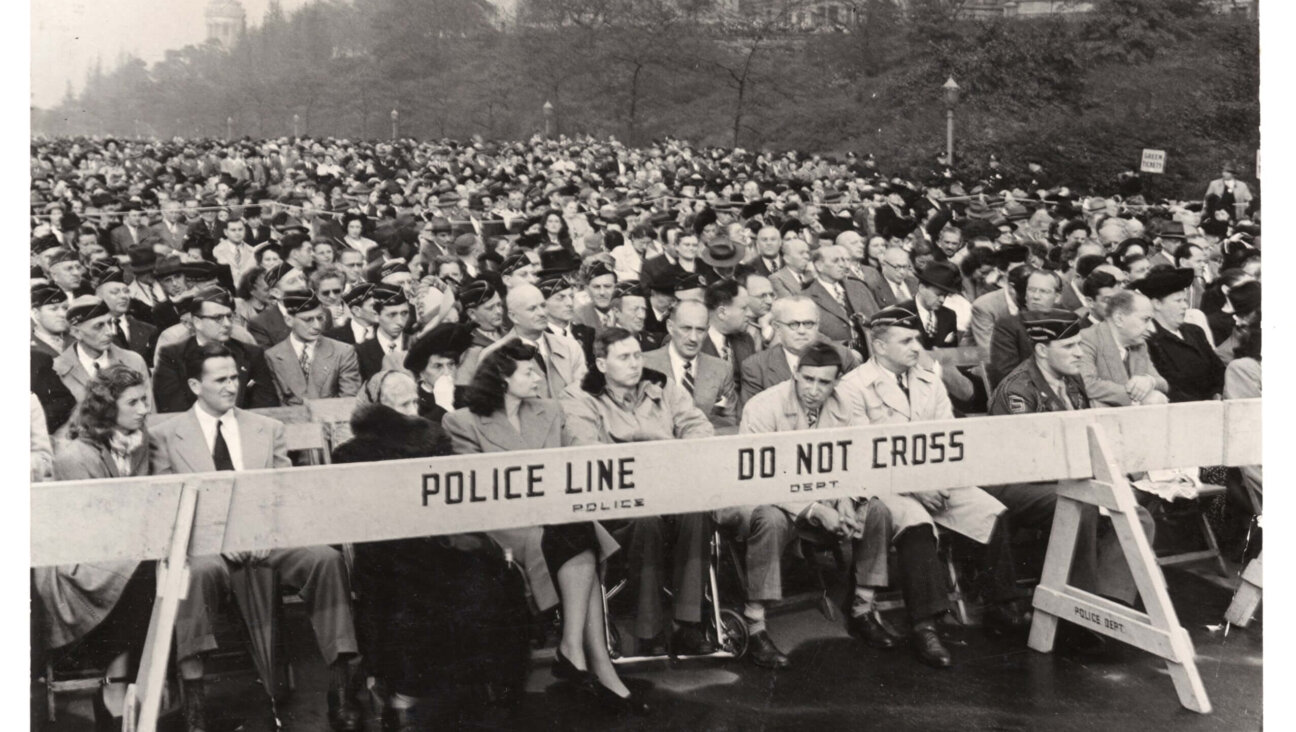The Radical Rationalism of Maimonides
Maimonides’ Confrontation With Mysticism
By Menachem Kellner
*Littman Library of Jewish Civilization, 320 pages, $49.50. *
Moses Maimonides (Rambam, in traditional parlance) has been widely lionized as the greatest mind in Jewish history. Even before his death in 1204, the Jews of Yemen went so far as to include his name in their version of the Kaddish, imploring that God’s kingdom be established “in our lives, in ours days, in the lives of thy children Israel and in the lifetime of our master, Moses ben Maimon.” The Jews’ reverence for Maimonides’s unmatched rabbinic learning earned him the title “the great Eagle,” just as their appreciation for his great communal leadership was reflected in his moniker, “the Mordecai of his generation.” The popular adage “from (the biblical) Moses until Moses (Maimonides), there arose no one like Moses” daringly challenged the Torah’s judgment that “never again did there arise a prophet in Israel like Moses.” And no Jew has had nearly as many institutions — from yeshivas and charitable foundations to hospitals and nursing homes — named for him.
Despite all this reverential acclaim, however, Maimonides’s radically rational and deeply universalist understanding of the Jewish religion has been shared by precious few Jews over the centuries. While his great codex of Jewish law, the Mishneh Torah, is still widely studied and analyzed, its status as a source for rabbinical adjudication was definitively eclipsed by the Code of Jewish Law, or Shulchan Arukh, more than four centuries ago. And except for the deep interest it holds for medievalist scholars, his philosophical opus, “The Guide for the Perplexed,” is even less influential today than it was in the 13th century, when the Spanish rabbis, scandalized by the extent to which it appeared to subjugate the Torah to Aristotelian rationalism, handed it over to the Dominicans to be publicly burned. The burning took place in Montpellier, Southern France, in December 1232.
As Menachem Kellner demonstrates in his impressive new book, “Maimonides’ Confrontation With Mysticism,” the Maimonidean view of Judaism as a rational faith whose central goal is to facilitate the perfection of the human intellect is fundamentally at odds with almost all subsequent traditional understandings of the meaning and purpose of the Torah and its commandments, which have been so deeply informed by their more romantic and mystical interpreters.
Kellner’s central argument, one that weaves its way through every chapter of this fine study, is that Maimonides offered a philosophy of Judaism deliberately meant to challenge the mystics of his era, whose theology was rooted in a belief in the ontological reality — that is, the actual objective existence — of spiritual and supernatural forces, both holy and demonic, in the created universe, and also rooted in the accompanying conviction that the performance of the Torah’s
commandments constitutes a complex and elaborate engagement with those very forces. In his analysis of hundreds of passages from Maimonides’s major works, Kellner demonstrates that Maimonides took an instrumental, as opposed to an essentialist, view of Jewish law, according to which all the people, places and things deemed holy by Judaism are so regarded only as a result of their sanctification through religious practice. Kellner proposes to:
“… prove that holiness is not a property but an institutional status for Maimonides; that Hebrew, the holy language, is not holy in any essentialist, ontological sense; that the distinction between ritual purity and impurity reflects no extra-halakhic reality; that Jews and non-Jews are distinguished by nothing beyond history, belief and behavior….”
Kellner argues that Maimonides’s instrumentalism derived both from his rigorous, Aristotelian rationalism — which gave no quarter to supernatural forces or miraculous phenomena — and from his almost fanatic insistence on God’s complete transcendence, according to which the Deity shares nothing with the created universe:
“Halakha for Maimonides does not describe an antecedent existing reality; rather it constitutes or constructs a social reality. This point is important for Maimonides, since it assists him in protecting God’s transcendence.”
Since God is utterly transcendent and radically other than anything in the physical universe — and since God alone is “the Holy One” — actual, ontological holiness can inhere in Him only. But what then, for Maimonides, can the Halacha possibly mean when it categorizes people, places and things as being divrei kedusha, or holy objects? The rabbis have, after all, deemed so many things to be holy, from ritual objects like Torah scrolls, tefillin and mezuzot to the Hebrew language (lashon ha-Kodesh), the Land of Israel (Eretz ha-Kodesh) and, not least, the people of Israel, whom the Torah commands to be a Holy nation.
In a series of chapters dedicated to such subjects as “Ritual Purity and Impurity,” “The Hebrew Language,” “Jews and Non-Jews” and, of course “Angels” (which, for Maimonides, do not actually exist), Kellner demonstrates the startling thoroughness and consistency of Maimonides’s utilitarian anti-mystical worldview. So, for example, there is for him nothing intrinsically or essentially holy about a Torah scroll, or a mezuzah, or a pair of tefillin. The holiness of these objects derives solely from their consecration and use for the sacred purpose of regularly reminding Jews of their covenant with God. In other words, their sanctity is a byproduct of their function as educational instruments. The same instrumentalism — sharply contrasted by Kellner throughout his book with the mystics’ essentialist view — is applied by Maimonides to explaining the potentially chauvinist notion that the people of Israel, along with their language and land, are uniquely endowed with sanctity.
For Maimonides, then, ritual paraphernalia are not magical amulets; they are simply didactic devices. Tefillin and mezuzot are only as sacred as they are effective — not the reverse, as the mystics insist. Maimonides reserved particular contempt for rabbinic faith-healers, later known as Baalei Shem, hawking a mystical view of the Hebrew language and the supernatural powers that they claimed inhered especially in the names of God. In referring to the writers and salesmen of magical healing amulets, he writes:
*“Do not let occur to your mind the vain imaginings of the writers of amulets or names you may hear from them or what you may find in their stupid books, names they have invented and… they think work miracles. All these are stories that it is not seemly for a perfect man to listen to, much less to believe.” *
When reading Kellner’s lucid account of Maimonides’s de-sacralization of these ritual objects, I was reminded of the many miracle stories about flawed mezuzot leading to terrible misfortunes, particularly popular among the Hasidim (my personal favorite: the hunchback who was cured when the Lubavitcher rebbe divined that the word “walk” was misshaped in his mezuzah). One can only imagine what Maimonides would make of the magical tchotchkes, from red strings to Hebrew tarot cards, for sale in the Kabbalah Centre’s gift shops, to say nothing of Madonna’s form-fitting T-shirts emblazoned with the Lord’s ineffable name.
Similarly, for Maimonides, the holiness of Israel — both people and land — is not due to any innate, supernatural or divine quality that inheres in Jewish individuals or in soil and sand, but is rather the consequence of Israel’s becoming sanctified through the observance of the special laws of her covenant with God. Halachic obedience serves, both historically and socially, to construct holiness. Conversely, when the Jews do not behave in accordance with the Divine will, they relinquish any advantage over other nations, as well as their entitlement to the Land of Israel. “Holiness, in people, is a function of what they do, not of what they are,” Kellner writes. “To say that a person, or nation, is holy is to say nothing ‘ontological’ about them; it is to say much about how that person or nation acts. Similarly, to say that a place is holy is to say nothing ontological about it; it is to say much about the history of the place and about how the place must be treated in a halakhic framework.”
Kellner dares, at the very end of the book, to abandon objective, scholarly remoteness and to advocate for the importance of Maimonides’s worldview as a corrective to what he views as the unsettling excesses of contemporary Orthodox Judaism. The mystics’ essentialist view of Jewish law, he argues, lends itself to an uncritical reverence for the rabbis, and a sanctification of their opinions on all matters — including those that are purely political, as unassailable da’at Torah, the Torah’s pure opinion. This uncritical approach to the role of halachic authorities is not limited to the fervently Orthodox. It now dominates the once modern and moderate religious Zionist community, much to the consternation of Kellner — himself an Orthodox Zionist and a veteran professor of Jewish philosophy at Haifa University. He understandably takes a dim view of this political empowerment of the rabbis, and looks to Maimonides’s rational, instrumental understanding of the halakhic process for a remedy. To his credit, Kellner avoids compromising his scholarly credibility and objectivity by reserving these personal expressions to the book’s afterword. But, equally to his credit, he is not shy about expressing disdain for the trends toward fundamentalism among his Orthodox brethren.
“[A]n objective examination of the actual political record of the rabbis is hardly encouraging. From the first rabbis whom we know to have been involved in politics (Rabbi Akiva vis-à-vis Bar Kochba) to the rabbis who counseled Jews not to flee Europe before the Holocaust, prominent rabbis do not appear to have distinguished themselves by their political acumen.”
It is especially from Maimonides’s universalism and his rejection of the notion, made respectable by Judah Halevi, that there is anything inherently special, let alone uniquely holy, about the Jews, that Kellner nobly, if naively, seeks relief. In summing up his chapter on “Jews and Non-Jews” Kellner ends his book on a note of almost messianic, if bittersweet, optimism.
“Maimonides’ Judaism demands much, but offers little. More precisely, it offers much but few can take advantage of it. Those, like me, who find in his views a vision of Judaism which is both attractive and true to Torah can only regret that he has not yet succeeded in winning over the vast bulk of Jews who study his writings with devotion. But, with Maimonides, I am optimistic that day will come….”
“Maimonides’ Confrontation With Mysticism” is that rare scholarly study that manages not to compromise on academic rigor while daring to state strongly held convictions that are so relevant in times troubled by the many irrational “surges” of political, military and religious fundamentalism.

I hope you appreciated this article. Before you go, I’d like to ask you to please support the Forward’s award-winning journalism this Passover.
In this age of misinformation, our work is needed like never before. We report on the news that matters most to American Jews, driven by truth, not ideology.
At a time when newsrooms are closing or cutting back, the Forward has removed its paywall. That means for the first time in our 126-year history, Forward journalism is free to everyone, everywhere. With an ongoing war, rising antisemitism, and a flood of disinformation that may affect the upcoming election, we believe that free and open access to Jewish journalism is imperative.
Readers like you make it all possible. Right now, we’re in the middle of our Passover Pledge Drive and we need 500 people to step up and make a gift to sustain our trustworthy, independent journalism.
Make a gift of any size and become a Forward member today. You’ll support our mission to tell the American Jewish story fully and fairly.
— Rachel Fishman Feddersen, Publisher and CEO
Join our mission to tell the Jewish story fully and fairly.
Our Goal: 500 gifts during our Passover Pledge Drive!






















